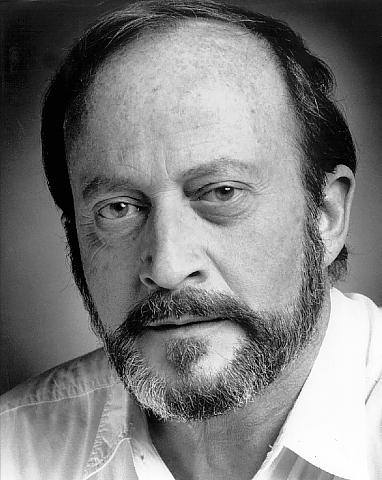George Whaley.
Venerable stage, film and TV director, actor, playwright and teacher George Whaley died yesterday, aged 85.
A former head of acting at NIDA and head of directing at AFTRS, Whaley wrote and directed the 1995 movie Dad and Dave: On Our Selection and the miniseries Harp in the South in 1986 and Poor Man’s Orange in 1987, all for producer Tony Buckley.
His longtime friend and former AFTRS director Storry Walton said Whaley had a stellar career as a “wonderful, generous, innovative and influential contributor to Australian life and to our theatre, film and television world.”
In 1962, with fellow director Wal Cherry, he opened the 140-seat Emerald Hill Theatre in South Melbourne. He appeared in numerous plays there and at the Old Tote Theatre, the Melbourne Theatre Company, the Nimrod Theatre Company, the Belvoir Street Theatre and the Griffin Theatre Company.
He directed a large variety of plays by Australian and non-Australian playwrights including Brecht’s Mother Courage, John Derum’s adaptation of C.J. Dennis’ More than a Sentimental Bloke, David Williamson’s The Perfectionist and Harold Pinter’s Old Times.
Buckley hired Whaley to direct Harp in the South for Network Ten, adapted from the Ruth Park novel, after seeing his short film Dancing, set in a Greek dancing school, which he made while undertaking the stage-to-screen course at AFTRS. “Dancing showed he knew what to do with the camera and how to work with actors,” Buckley tells IF.
An adaptation of Whaley’s play drawn from Steele Rudd’s stories, Dave and Dave: On Our Selection starred Leo McKern, Joan Sutherland and Geoffrey Rush.
He had guest roles in many series including Consider Your Verdict, Homicide, Division 4, The Flying Doctors, Bodyline, A Country Practice, Mother and Son and All Saints. His last screen credit according to IMDB was an episode of The Gods of Wheat Street in 2014.
After serving as head of acting at NIDA he joined AFTRS in the mid-1990s, initially as directing consultant and later as head of directing until 2002.
“George was a director who could move easily between theatre and film as well as being a consummate actor. He was always considered by those that worked with him to be a great collaborator and an inspiration,” Australian Directors’ Guild CEO Kingston Anderson tells IF.
He is survived by his wife Georgina (Georgie).



